Table of Contents
The e-commerce market in the UAE is expected to reach 48.8 billion AED by 2028, which shows that more and more customers are choosing the ease of online shopping. If you are a small business in Dubai, then it is imperative that you not only have an online presence, but can also facilitate customers with online payments.
One way you can accept online payments is through a website and the other is through a payment link. However, both methods require you to incorporate a payment gateway that can facilitate these payments. Now, as a small business, you should be aware of how the payment system works, what is a payment gateway and how it helps you accept online payments. In this guide, we’ll explore what a payment gateway is, how it works, and why it’s essential for your online business.
What is a Payment Gateway?
In simple terms, a payment gateway is the digital equivalent of a point-of-sale terminal in a physical store. It facilitates the transfer of payment information between your customer, their bank, and your business account. Without it, accepting online payments securely and efficiently is impossible.To make it simple, let’s take an example of a customer who wants to purchase something from your website. When they input their card details, the payment gateway acts as the middleman, and ensures that the transaction is securely processed, and funds are transferred to your account. Payment gateways not only ensure secure payment processing, but also provide flexibility, allowing customers to use their preferred payment methods—whether it’s a credit card, digital wallet, or bank transfer.
How Does a Payment Gateway Work?
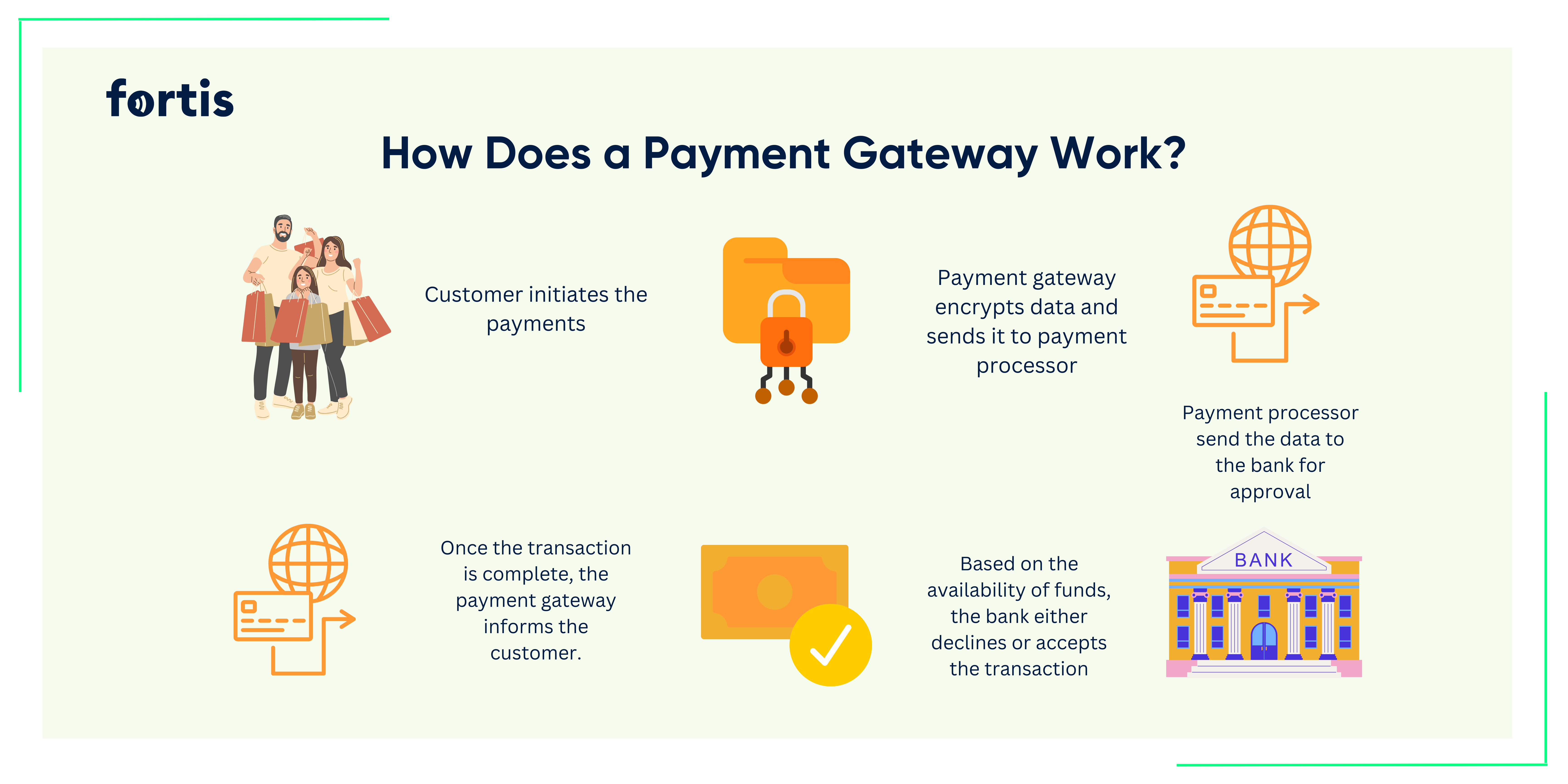
Now that you know what a payment gateway is, let’s see what goes on behind the scenes.
- Customer Initiates Payment:
When a customer selects a product and checks out, they input their payment information, such as credit card details or digital wallet credentials. - Data Encryption:
The payment gateway encrypts the sensitive information to prevent unauthorized access. - Authorization Process:
The encrypted information is sent to the payment processor, which forwards it to the customer’s bank or credit card network for authorization. - Approval or Decline:
The customer’s bank checks details for accuracy and available funds. If everything is in order, the payment is approved. Otherwise, it’s declined. - Transaction Completion:
Once approved, the payment gateway notifies both your website and the customer, confirming the transaction. Funds are then transferred to your merchant account.
The entire process happens within seconds, ensuring a smooth experience for your customers.
Types of Payment Gateways
Not all payment gateways are alike. You can choose from several types depending on your business’s needs:
1. Hosted Payment Gateways
Hosted payment gateways redirect your customers to a secure, external page to complete their payment. After entering their payment details and completing the transaction, they are redirected back to your website.
2. Self-Hosted Gateways
Self-hosted gateways keep the entire checkout process on your website. Customers input their payment information directly into your checkout form, and the details are sent securely to the payment gateway for processing.
3. API-Based Gateways
API-based gateways allow you to fully integrate payment processing into your website or app via an Application Programming Interface (API). So, not only does it offer a smooth checkout experience without redirects, but also gives you complete control over the user interface.
4. Local Bank Integration
If your business serves specific local markets, then you should consider integrating directly with a local bank’s payment gateway. This setup connects your website to the bank’s online payment processing system.
Why is a Payment Gateway Important for Your Online Business in Dubai?
The payment gateway market is expected to touch USD 34.80 billion by 2029, indicating their growing importance in online payments. Payment gateways are not meant for large retailers only, if you are a small business, especially in a market like the UAE, you need to offer your customers multiple payment methods.
As a small online business, you have two options to collect payments: cash on delivery or bank transfers, but they hurt customer experience. A payment gateway makes it easier for customers to check out online. Here is why you should opt for a payment gateway:
1. Brand Reputation
If you just accept cash or maybe online transfers, it indicates to your potential customers that you are a small business that has not yet matured. A seamless payment experience signals a professional and well-organized business. It shows your customers that you are well-established.
2. Security
One of the major concerns for anyone shopping and paying online is security. Nobody wants to enter their card or personal information online if it is not secure. Payment gateways encrypt sensitive customer information, such as credit card numbers and personal details, during transmission, which makes it extremely difficult for hackers to intercept and decipher the data. Implementing a payment gateway shows your customers that you prioritize their safety and security and encourages repeat purchases.
3. Customer Experience
The checkout process is a critical moment in the customer journey. A cumbersome or slow payment process can frustrate customers, leading to abandoned carts and lost sales. Studies show that a significant percentage of cart abandonments occur due to issues at checkout, such as slow loading times, complicated forms, or limited payment options.
A reliable payment gateway addresses these challenges by offering quick and intuitive transactions. Features like one-click payments, auto-fill for returning customers, and optimized mobile compatibility streamline the process, reducing friction and improving conversion rates. The smoother the transaction, the more likely your customers are to complete their purchase and return in future.
4. Scalability
As a small business, you need to keep in mind scalability. A payment gateway grows with your business, allowing you to accept payments from an ever-expanding customer base. Whether you’re venturing into international markets or adding new product lines, the right gateway ensures you’re prepared for growth.
For example, if you’re targeting global customers, a payment gateway with multi-currency support and cross-border payment capabilities enables you to accept payments in various currencies. Additionally, many gateways support multiple payment methods, such as credit cards, digital wallets, and buy-now-pay-later services, giving your customers the flexibility they expect.
5. Saves Time & Resources
A payment gateway automates payment processing, reconciling accounts, and handling refunds. Once you automate your payments, you can focus on more strategic aspects of your business, such as marketing, customer service, or product development. Additionally, many payment gateways offer detailed transaction analytics and reporting tools, helping you track sales performance, identify trends, and manage cash flow more effectively.
With these insights, you can make data-driven decisions that support business growth. Integrating a payment gateway also minimizes the need for extensive in-house technical resources. Most gateways come with easy-to-follow integration guides and customer support to resolve technical issues.
How To Select the Right Payment Gateway?
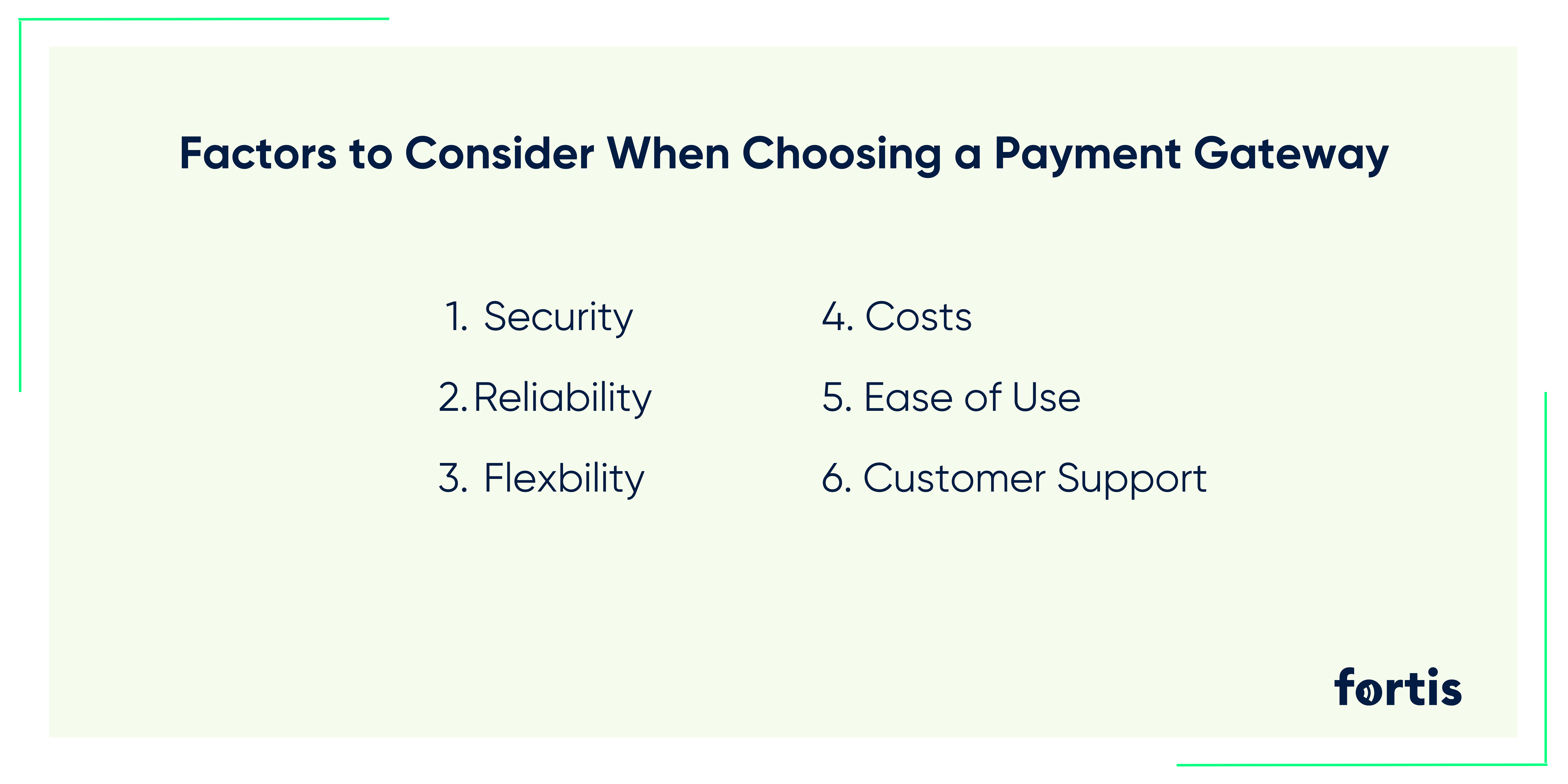
By now, if you have decided to incorporate a payment gateway for your online business, then here are some features that you should keep in mind:
Security
A secure payment gateway encrypts sensitive information and replaces it with a token to protect customer data. Look for gateways that comply with the Payment Card Industry Data Security Standard to ensure secure payment processing.
Reliability
A reliable payment gateway ensures high uptime and quick transaction processing to avoid losing sales due to delays.
Flexibility
Choose a gateway that accepts credit cards, digital wallets, bank transfers, and more. Offering diverse payment options improves customer satisfaction. If you’re selling internationally, ensure your gateway supports multiple currencies and handles conversion seamlessly.
Cost Considerations
Payment gateways typically charge fees for their services. These fees can vary widely depending on the provider, the type of gateway, and the specific features you need. Here are the common types of fees:
- Transaction Fees: A percentage of each transaction processed.
- Monthly Fees: A fixed monthly charge for using the gateway service.
- Setup Fees: A one-time fee for setting up the gateway account.
- Chargeback Fees: Fees incurred when a customer disputes a charge.
- Currency Conversion Fees: Fees for processing transactions in foreign currencies.
Consider your business volume, the types of payments you accept, and your specific needs before opting for a payment gateway.
Ease of Use
Make sure that the service you are opting for is easy to use. A clunky interface can drive away customers.
Customer Support
Payment issues can arise anytime, so having access to a responsive support team is crucial.
Go Online With Fortis
As a small business, it is sometimes difficult to spare the time and budget to set up a website and take your business online. However, in a market like the UAE, it is extremely important to have an online presence.
With Fortis, you can go online without the hassle of setting up a website. Here is how:
Online Catalog
With Fortis POS solution, you can convert your catalog into an online store with just one click without any training, or expertise. You can share this catalog with your customers or even use it in social media campaigns.
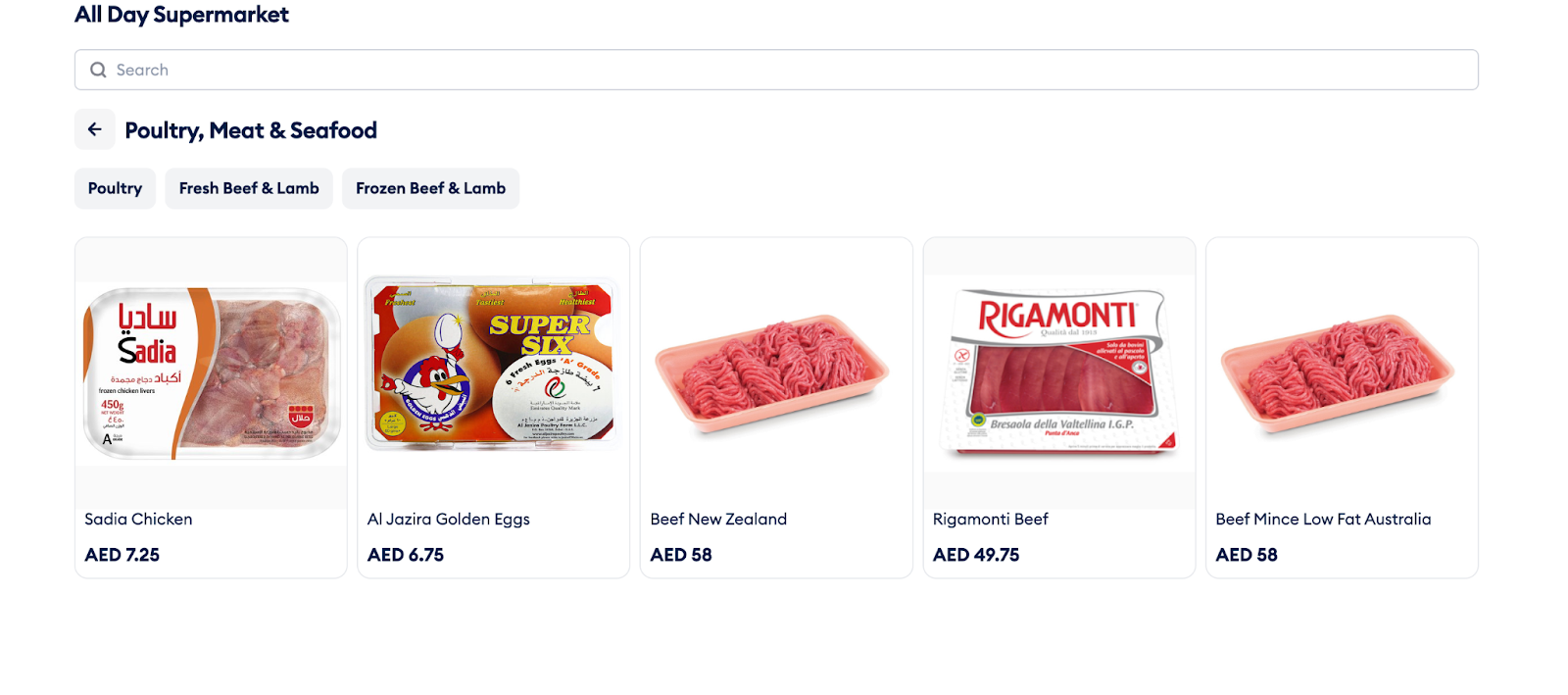
Customers can select items and add them to the cart. Once they are ready to pay, the online catalog redirects them to the checkout page or payment gateway hosted by Fortis in collaboration with Network International. Customers can then choose to pay by credit card, debit card, Samsung Pay and even Apple Pay.
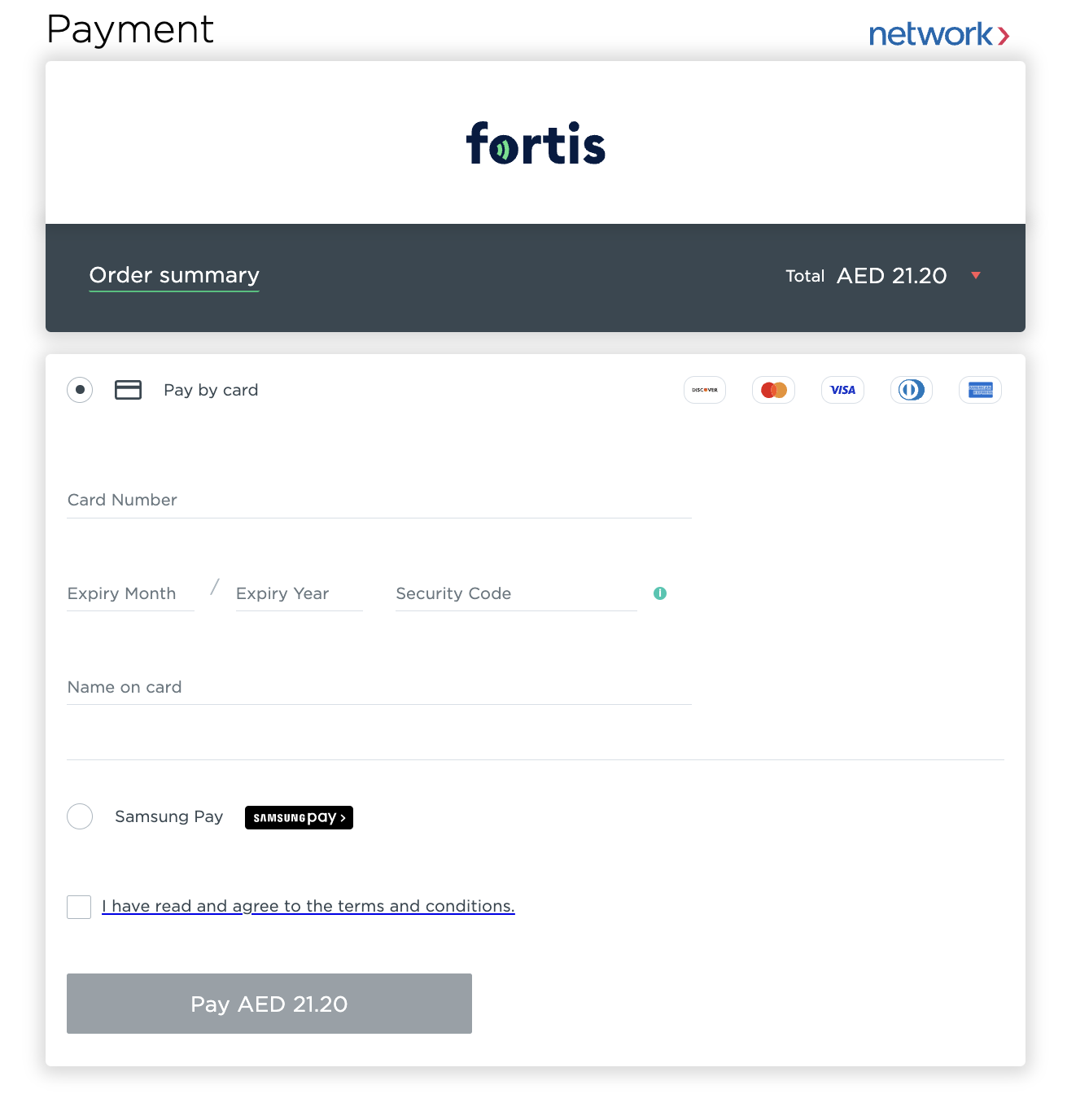
Payment Links
If you sell through social media such as instagram or Facebook for example, you can also create an order in the Fortis POS solution and then send a payment link to your customers. Once customers click on the link, it redirects them to the payment gateway where they can pay through card, or Samsung or Apple Pay.
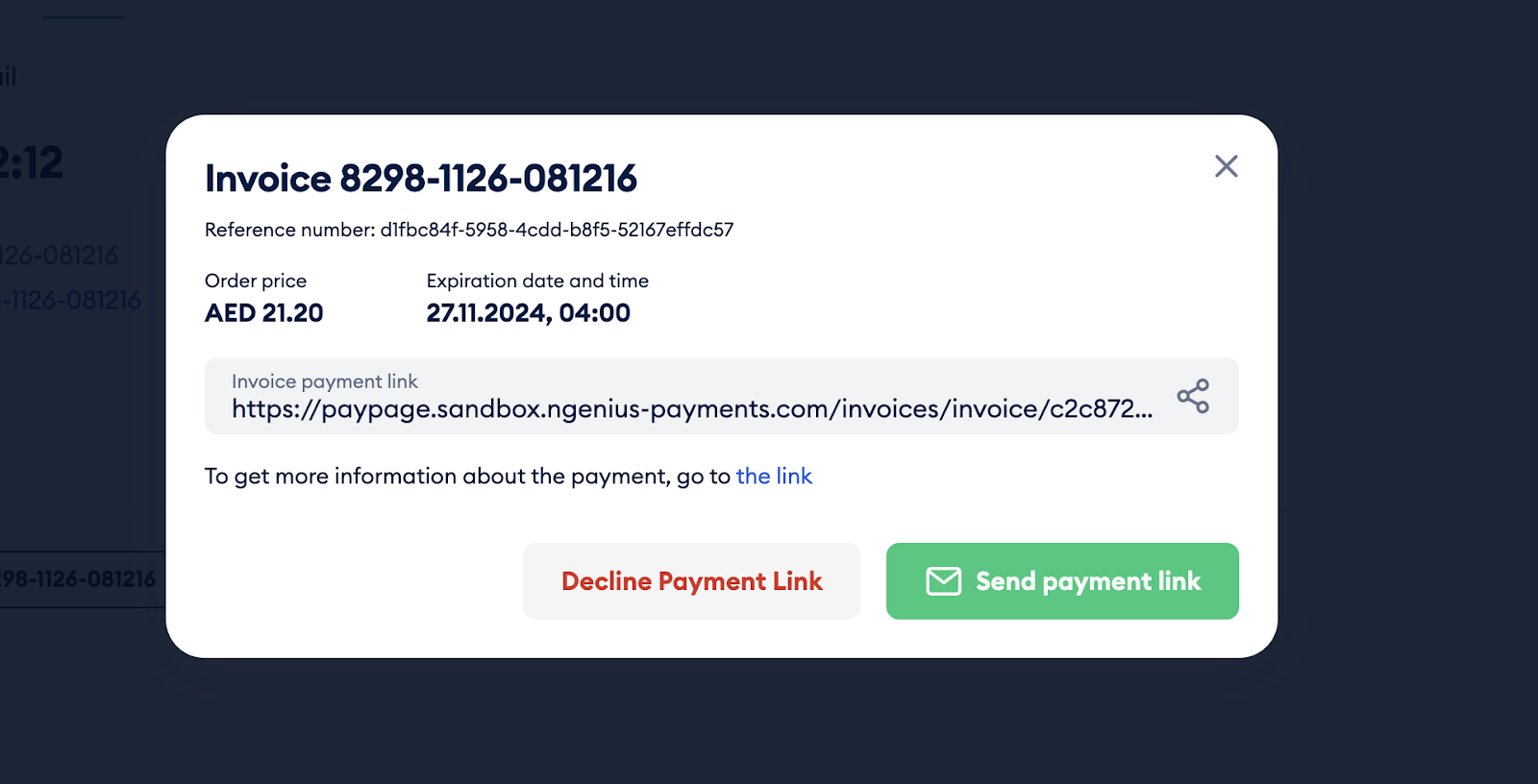
Conclusion
Payment gateways are the foundation of online payments and ensure your customers can pay securely and conveniently. Whether you're just starting your online journey or scaling to new markets, an efficient and reliable payment gateway is essential for success.
If you are a small business that wants to go online, then you can do so with Fortis POS solution. Book a demo today and go online without any extensive investment.




.svg)







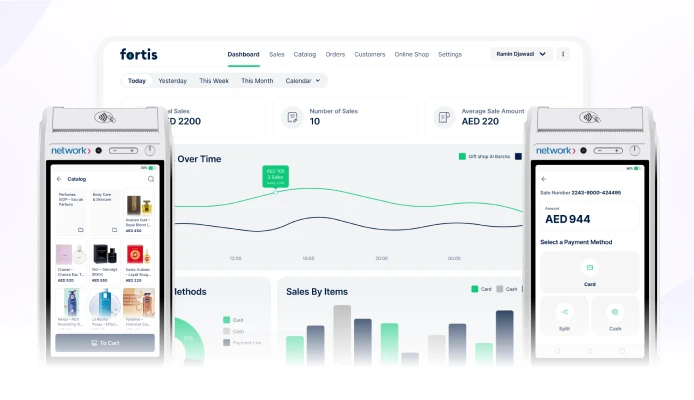
.svg)

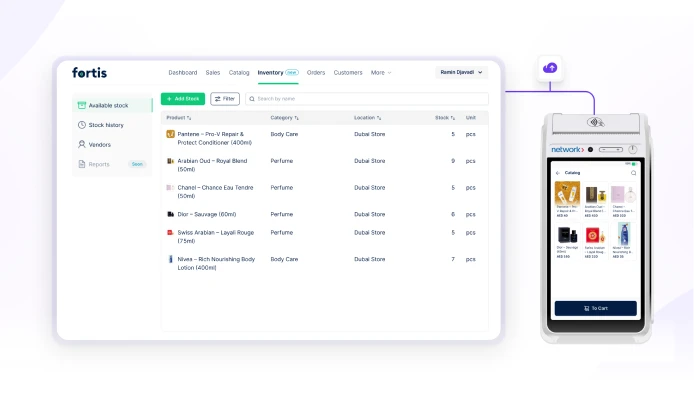










.png)
.png)
.png)



